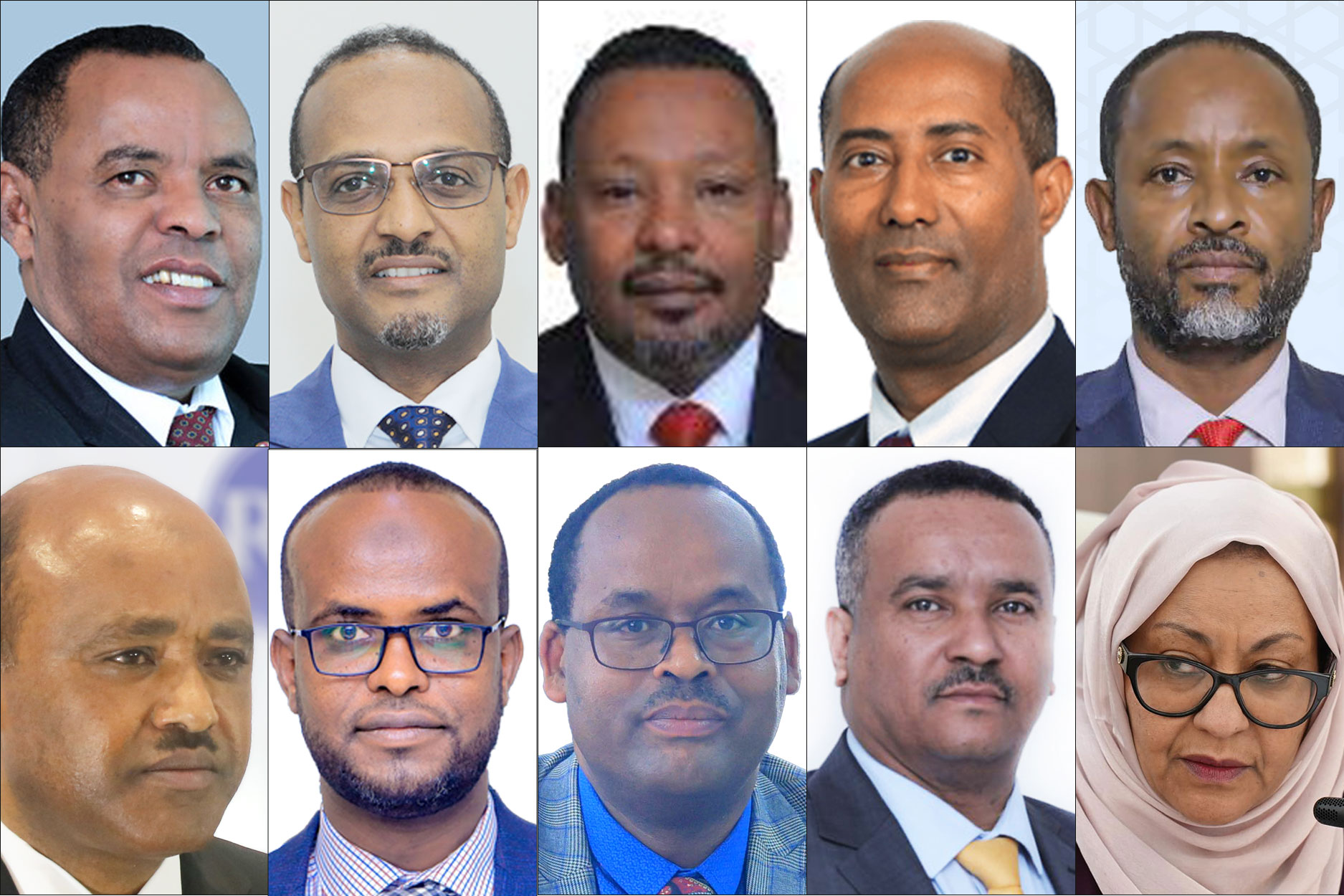
Commentaries | May 25,2019
Sep 18 , 2021
By Halima Abate (MD)
Healthcare is expensive. Different factors fuel costs, including rising incidence of chronic conditions, lifestyle choices, increased aging population, liability concerns, obsolete technology and efforts by the healthcare providers to improve profitability. The matter is no different in Ethiopia.
Recently, the Ministry of Health has put in place a fee rate revision payable for medical services provided by the public hospitals. These health cost rises make the healthcare spending for the government painful, and tradeoffs are inevitable such as reducing spending on education or charging citizens more for out of pocket payments. This will have far-ranging consequences as health systems result from a complex mixture of institutions, regulations, conventions, and historical accidents.
Practical considerations often force decision-makers to deviate from the decisions they would make if faced only with the simple efficiency–equity maximisation problem. They have to consider political priorities and institutional constraints. Patients should normally pay the actual unit cost of services for under- or overutilisation not to occur. But there are always difficulties involved in tracking and allocating administrative overhead and other indirect costs to identify the true unit cost of health services.
For those with low incomes, and thus less likely to have health insurance, out-of-pocket spending is the norm. It makes health care unaffordable and inhibits their ability to access care where needed.
None of this takes away from the importance of healthcare nonetheless, which is still critical whether or not people can afford it.
Healthcare is regarded as a basic human need by most people. Accessing health and confronting disease challenges requires action across a range of activities in the health system. Enabling access to healthcare paves a way to obtain health and health-related services with the following three components: physical accessibility (availability of health services with reasonable reach); financial affordability (people’s ability to pay for services without financial hardship), and acceptability (willingness to seek services). Access ultimately ensures universal health coverage, defined as the obtainment of preventive, curative and rehabilitative health and health-related services without incurring financial damage. Though access to health care does not guarantee good health, without such access, health is certain to suffer.
Hence, making improvements in the policy-making and stewardship role of governments; obtaining better access to human resources, drugs, medical equipment, and consumables; and encouraging a greater and deeper engagement of both public and private health care providers of services are crucial.
Great progress has been made in recent years within the health sector of Ethiopia for better access and to secure financial protection. This has contributed to improve not only health outcomes but also educational attainment, poverty alleviation and labour market productivity.
However, although healthcare should be a priority, without clear spending policies and effective payment mechanisms, the poor and other disadvantaged groups often get left out. Unfortunately, patients needs are often not translated into public policies.
Ministries of health such as our own, with respect to raising revenues for their health systems, explain how decisions on revenue-raising policy have an impact on universal health coverage. This is further undermined by international agencies that have been reducing financial support as a result of the recent downward trend in their own resources. Thus, a stable flow of funds to the health sector is critical to avoid disruptions in service delivery. Ensuring funds are raised in the most efficient way is also an important consideration.
Affording healthcare is a priority for both the insured and uninsured people. Beyond this, all health insurance systems have mechanisms for collecting and pooling revenues, spreading risk, and purchasing health services. Organising health insurance system with equity, efficiency and organisation in mind is fundamental in health care delivery system.
Through progressive financing arrangements, such as insurance systems, the government can subsidise the costs of health care for low-income individuals. The concept of national health insurance rests on the beliefs that everyone should contribute to finance health care and everyone benefits.
Yet progress is possible on a variety of fronts. This is particularly true in the area of e-procurement, which can make procedures more transparent, promote higher levels of participation, make it easier to track down anomalies, and generate data more efficiently. There is a clear need for further work to examine what methods are most effective in expanding access to essential care among the poor.
The proliferation of community-based health insurance schemes theoretically offers a way of addressing demand-side barriers into the benefit package. Yet, only one of the recent reviews of community schemes mentions that those costs cover a broad range of benefits which interact with existing health care programs.
The government should re-think its priorities to serve all income groups with the proper allocation of health service budgets instead of merely hiking prices.
PUBLISHED ON
Sep 18,2021 [ VOL
22 , NO
1116]


Commentaries | May 25,2019

Sunday with Eden | Mar 07,2020

Sunday with Eden | Jan 05,2019

Commentaries | Jul 17,2022

Sunday with Eden | Feb 29,2020


Sunday with Eden | May 13,2023

Fortune News | Sep 27,2025

Fortune News | Apr 13,2024

Radar | Aug 16,2020

Photo Gallery | 180331 Views | May 06,2019

Photo Gallery | 170528 Views | Apr 26,2019

Photo Gallery | 161561 Views | Oct 06,2021

My Opinion | 137274 Views | Aug 14,2021

Dec 22 , 2024 . By TIZITA SHEWAFERAW
Charged with transforming colossal state-owned enterprises into modern and competitiv...

Aug 18 , 2024 . By AKSAH ITALO
Although predictable Yonas Zerihun's job in the ride-hailing service is not immune to...

Jul 28 , 2024 . By TIZITA SHEWAFERAW
Unhabitual, perhaps too many, Samuel Gebreyohannes, 38, used to occasionally enjoy a couple of beers at breakfast. However, he recently swit...

Jul 13 , 2024 . By AKSAH ITALO
Investors who rely on tractors, trucks, and field vehicles for commuting, transporting commodities, and f...

Nov 1 , 2025
The National Bank of Ethiopia (NBE) issued a statement two weeks ago that appeared to...

Oct 25 , 2025
The regulatory machinery is on overdrive. In only two years, no fewer than 35 new pro...

Oct 18 , 2025
The political establishment, notably the ruling party and its top brass, has become p...

Oct 11 , 2025
Ladislas Farago, a roving Associated Press (AP) correspondent, arrived in Ethiopia in...

Nov 2 , 2025
The National Bank of Ethiopia (NBE) has scrapped the credit-growth ceiling that had s...

Nov 2 , 2025 . By SURAFEL MULUGETA
The burgeoning data mining industry is struggling with mounting concerns following th...

Nov 2 , 2025 . By YITBAREK GETACHEW
Berhan Bank has chosen a different route in its pursuit of a new headquarters, opting for a transitional building instea...

Nov 2 , 2025 . By BEZAWIT HULUAGER
Nib International Bank S.C. has found itself at the epicentre of a severe governance...